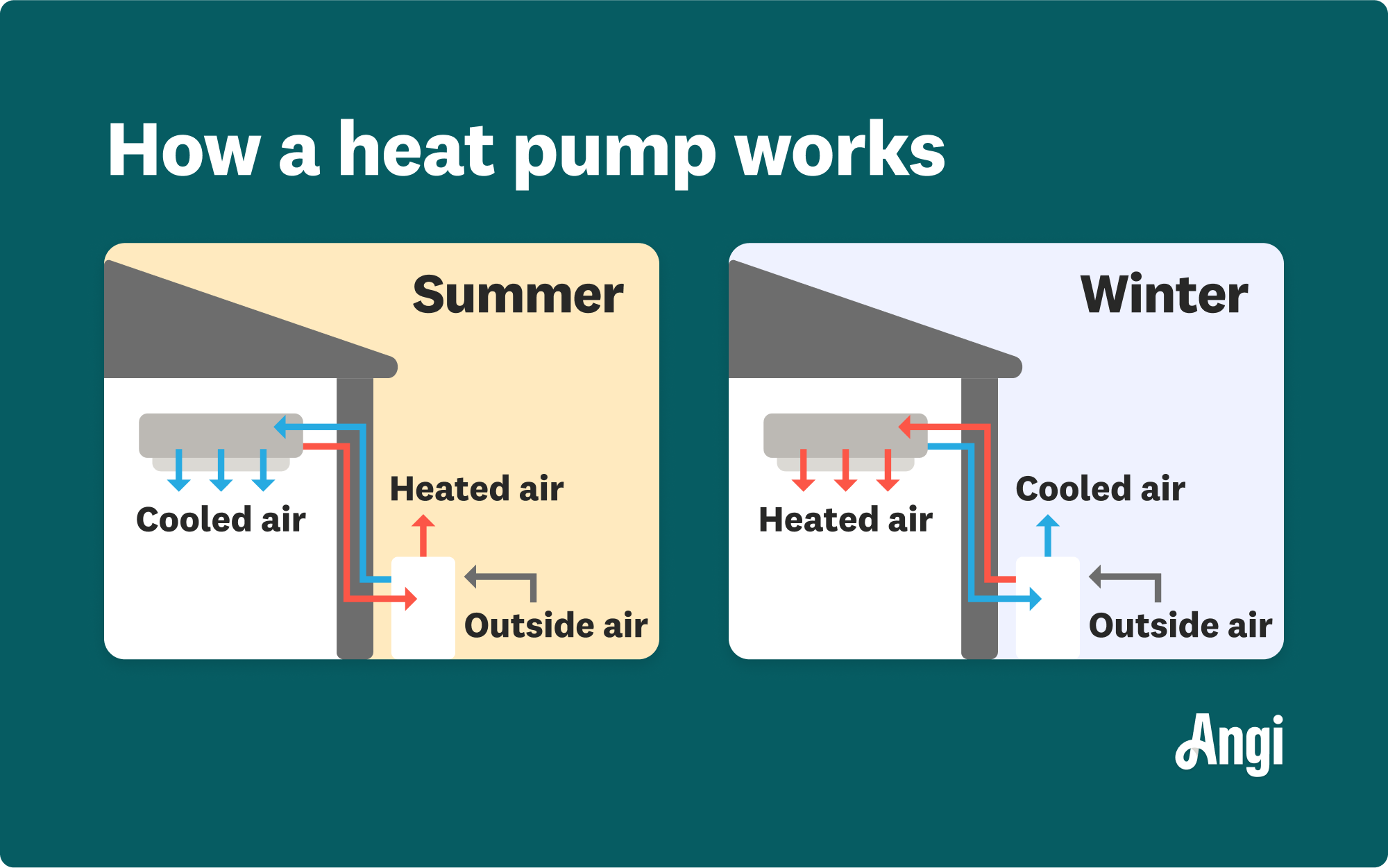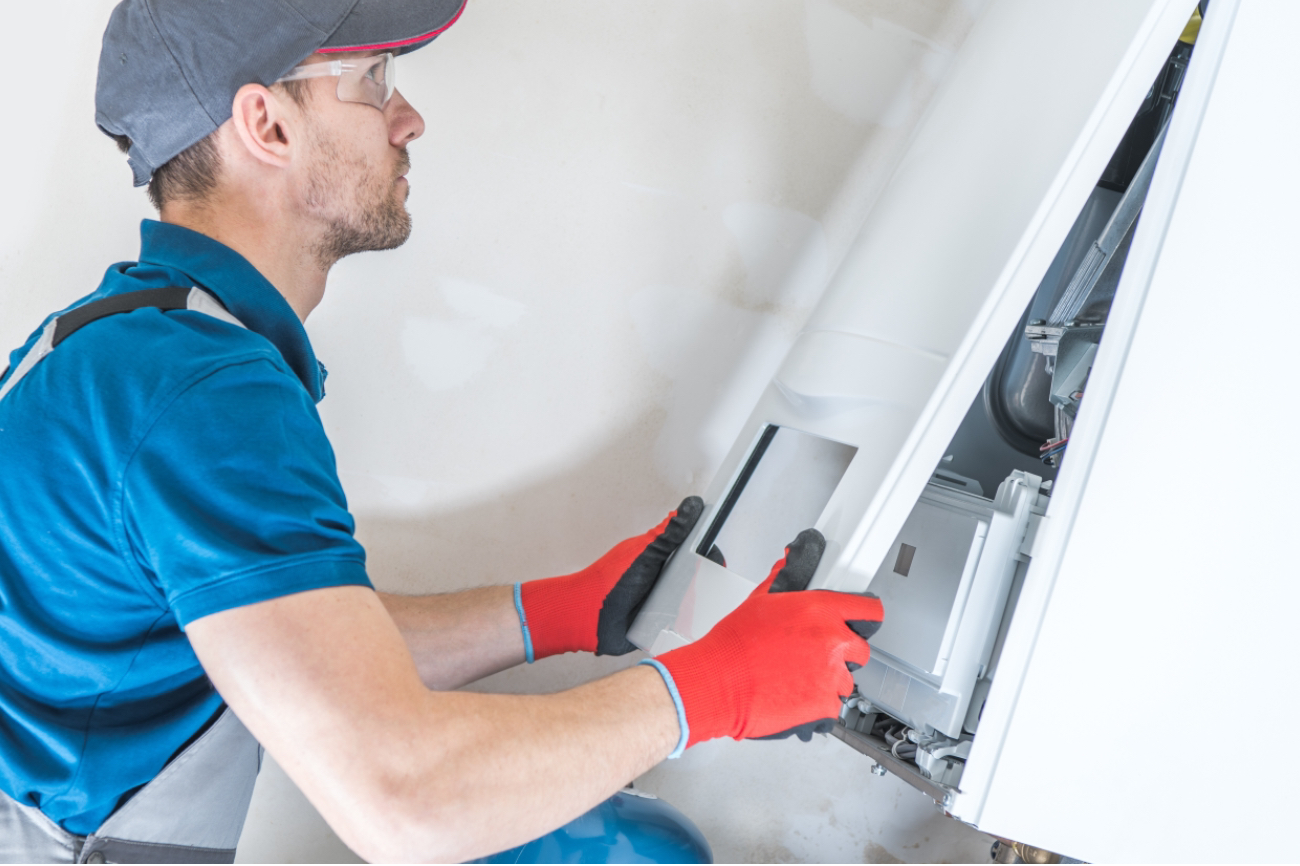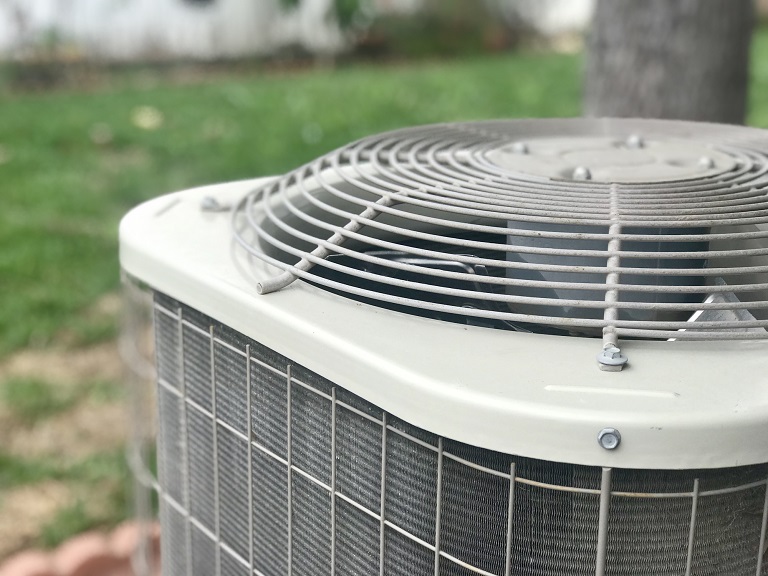
Do you know what it will cost to reroute ductwork in your home? Discover the cost factors and other considerations of this HVAC project.
You can stay warm and cool with the right heat pump system


Various types of heat pumps can both heat and cool your home.
The average cost of a heat pump system is between $4,235 and $7,905.
Heat pumps are energy efficient and improve home air quality.
Heat pumps aren’t as effective in below-zero temperatures as other heating systems.
There are many types of heating and cooling systems, which can make it overwhelming for homeowners searching for the best one for their home. You may have stumbled upon heat pumps and wondered, "Do heat pumps heat and cool?" The name can make you think these systems are solely for heating a home, but they are energy-efficient choices for cooling and heating. Let's examine how heat pumps work and the different types available to determine if this system is right for your home and budget.

Yes, heat pumps can heat and cool your home using electricity to transfer heat from one area to another. So, a heat pump that heats and cools works like an air conditioner in reverse to heat your home during the cold months of winter. It transfers heat from the air or ground outside into the house. The process consists of a refrigeration cycle that absorbs the heat and uses a compressor to complete the heating process.
When the warm season hits, the heat pump cools a house like an air conditioner. It removes heat from inside the home and transfers it outside. Simply put, the refrigerant absorbs the heat from the inside air and releases it outside, which cools down the house.
The cost of buying and installing a heat pump depends on a few factors, such as the type of pump, size, location, and labor costs. The average price range for a heat pump system is between $4,235 and $7,905.
However, it can be as low as $1,500 or as high as $12,000, depending on the type. For example, a mini-split system can cost between $1,300 and $8,000 to install, while a solar system can run between $18,000 to $39,000. So, the total price tag can vary significantly, but there are various types to choose from that may fit into your budget.

Now that you know that heat pumps can heat and cool, you may be considering adding one to your home. There are many different types of heat pumps to choose from, but here are the most common types:
Mini-Split Ductless: This type of system does not require ductwork. The outdoor compressor cools or heats the air, which is distributed through the indoor unit to cool the residence. This is an excellent option when a traditional ducted system isn't an optimal choice.
Ducted Air-Source: This is the most commonly used type of heat pump in homes. It consists of units inside and outside the home, and it is connected to ductwork that distributes hot and cold air throughout the residence.
Hybrid Heat Pump System: This type of system uses a gas furnace and an electric heat pump to efficiently heat the home during colder months. When it's hot, the process reverses and transfers the hot air outside.
A heat pump can be worth the cost if you live in a climate that doesn't consistently experience below-zero temperatures. These systems can improve air quality, and you can conveniently control your heating and cooling with one system.
Since it’s energy efficient, you may also qualify for a tax credit, such as the Air Source Heat Pump Tax Credit. Plus, there are several types of systems to choose from, so you can find one that meets your heating and cooling needs and fits into your budget. To find the best system for your home, get a quote from a professional heat pump installation company near you.
From average costs to expert advice, get all the answers you need to get your job done.

Do you know what it will cost to reroute ductwork in your home? Discover the cost factors and other considerations of this HVAC project.

Considering a heat pump to reduce monthly heating and cooling bills? Find out geothermal heat pump costs based on system type, capacity, and other factors.

What you’ll pay in Columbus, OH, for furnace repairs depends on many factors. Here’s a breakdown of what can go wrong and the cost to fix those issues.

Discover heat exchanger replacement costs to learn about price factors, labor, and ways to save before hiring a pro or starting your project.

Discover the average air handler replacement cost, including labor and materials, plus expert tips to help you budget and save on your HVAC upgrade.

Do you have a clogged AC drain line? We dig into the reasons behind those pesky blockages and how to clear them for optimal AC performance.